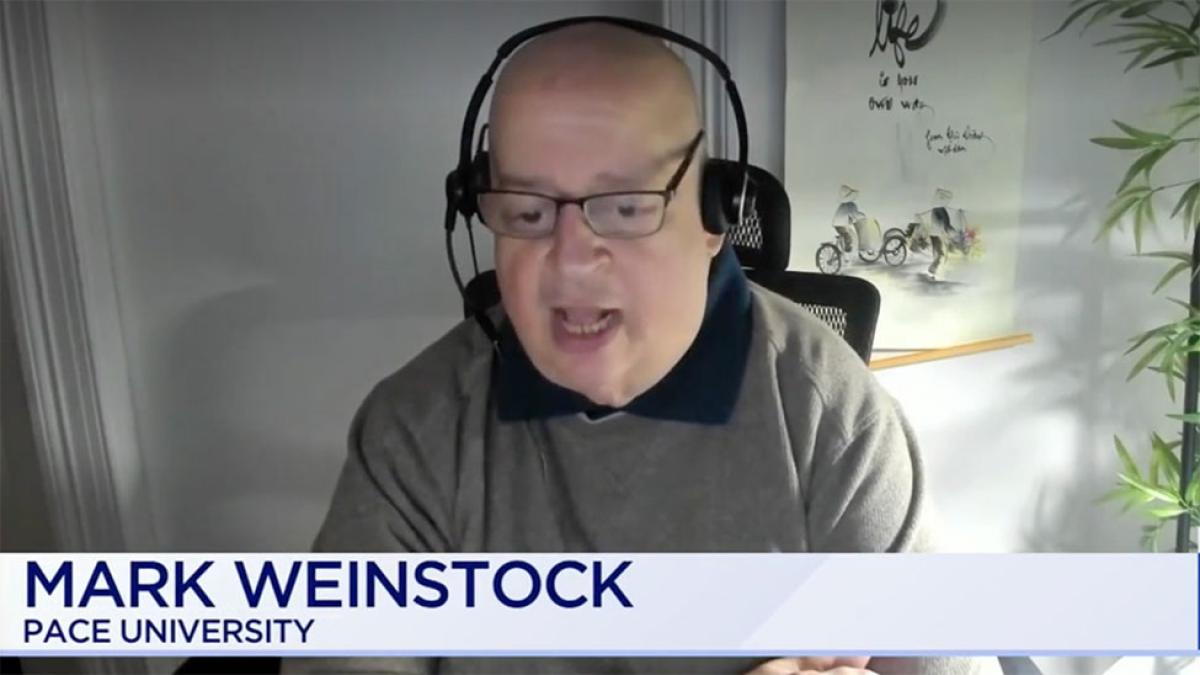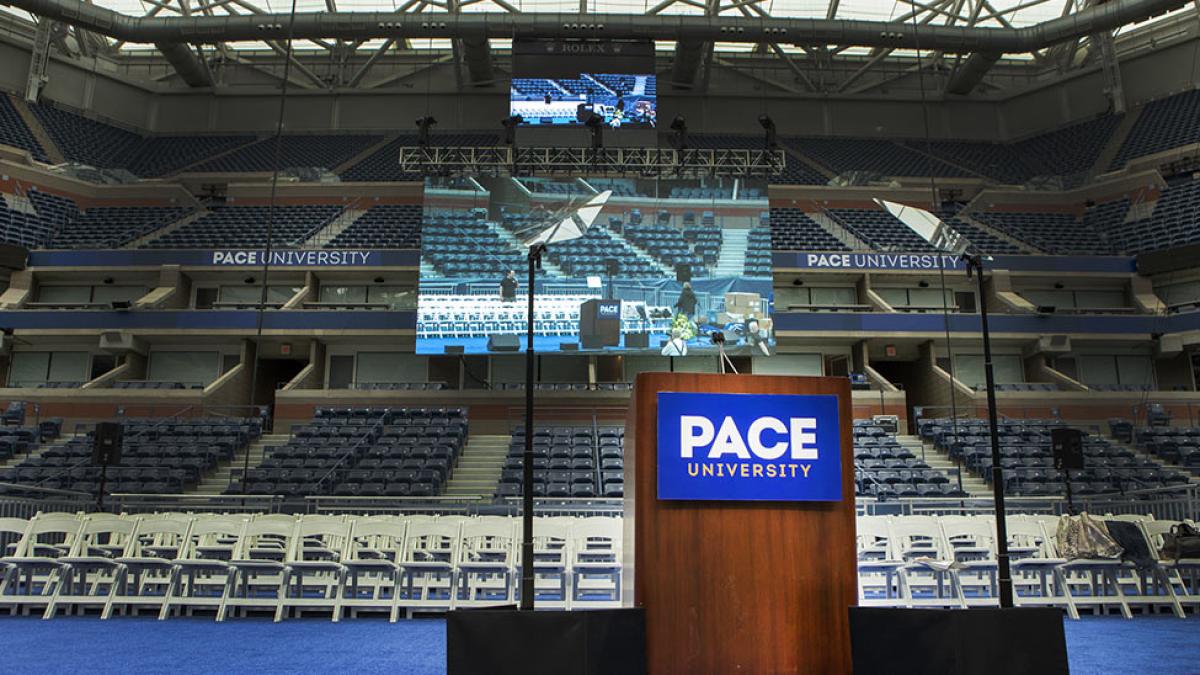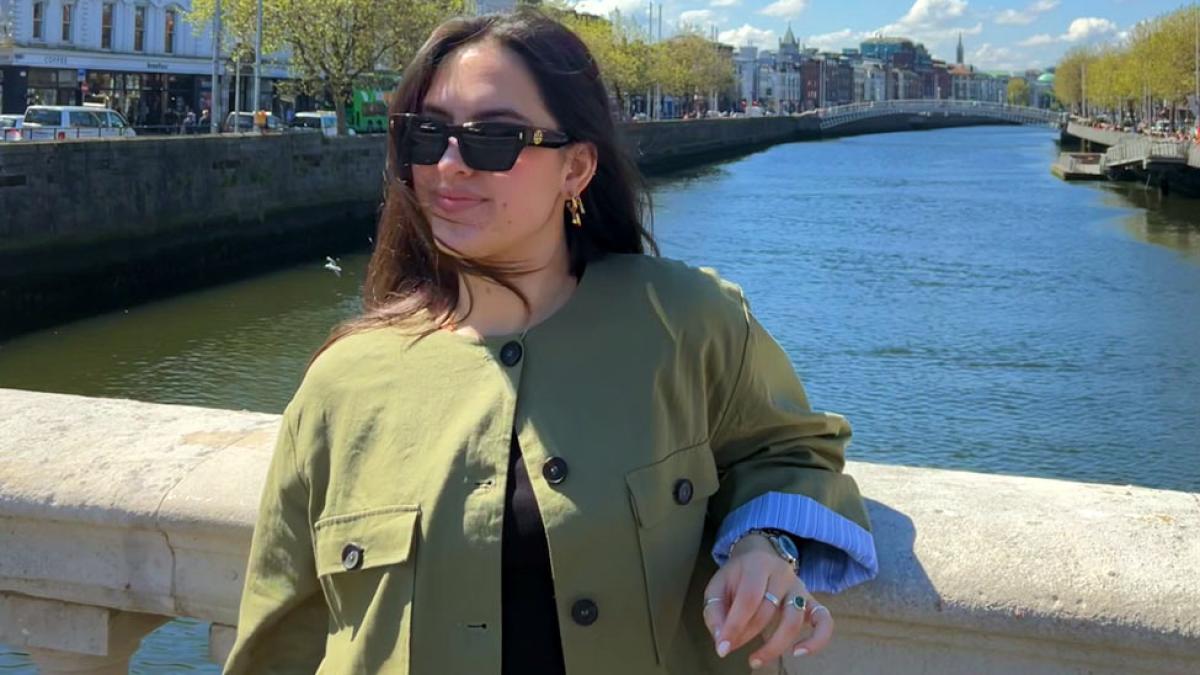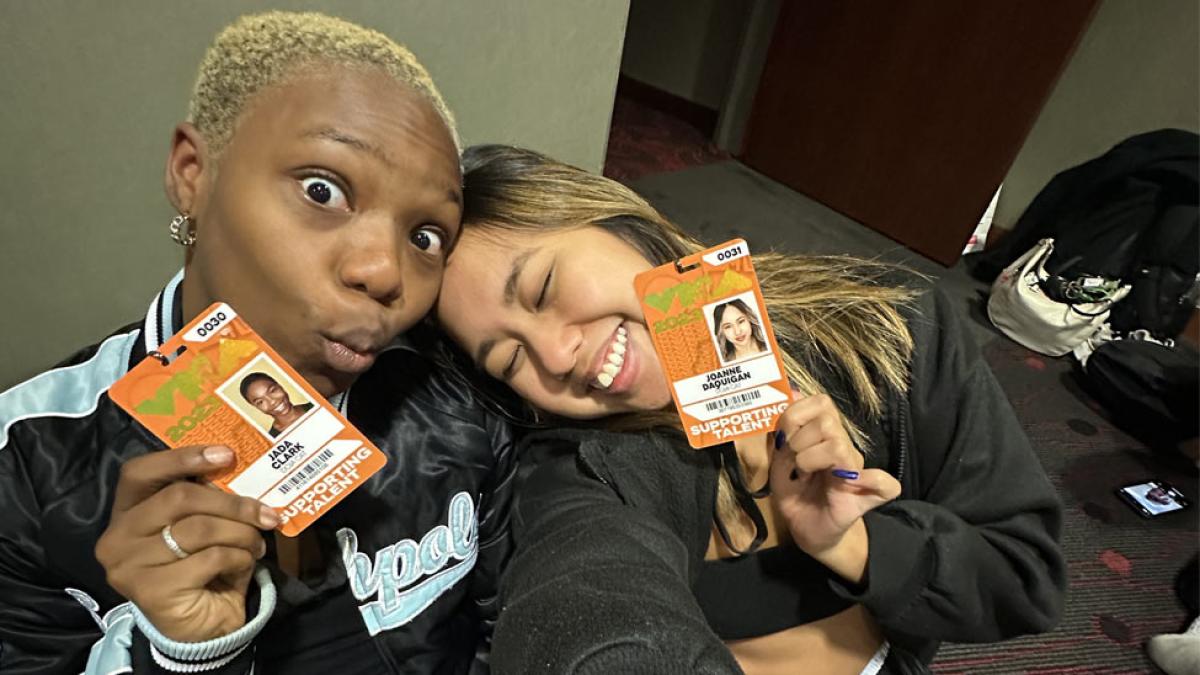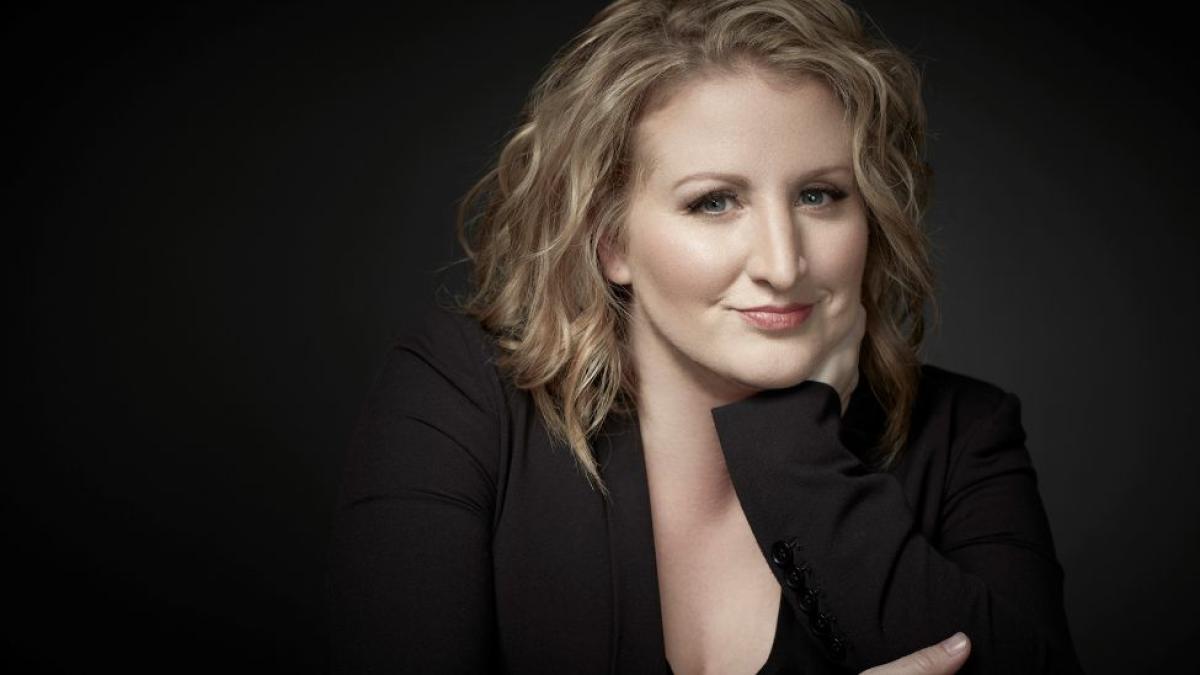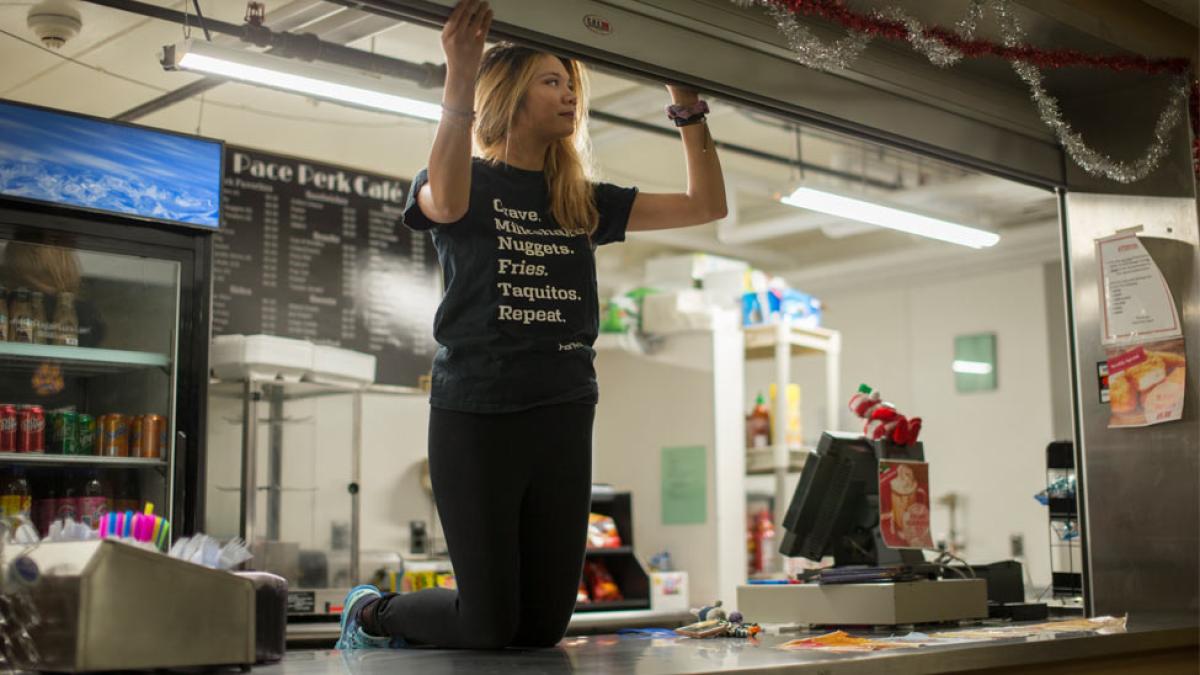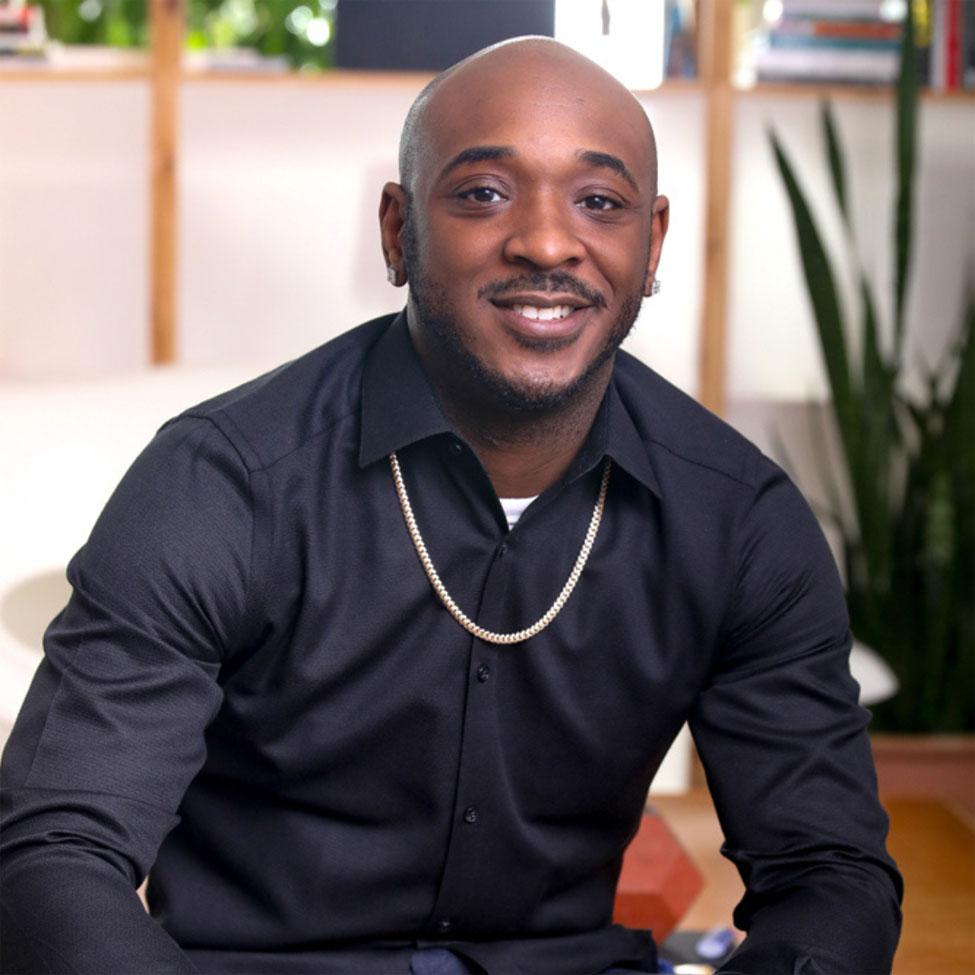
Keeping Marching Band In Step With Good Mental Health
Psychology Professor DaSean Young shares insights with the American Heart Association, emphasizing the under-researched connection between mental health and marching arts.
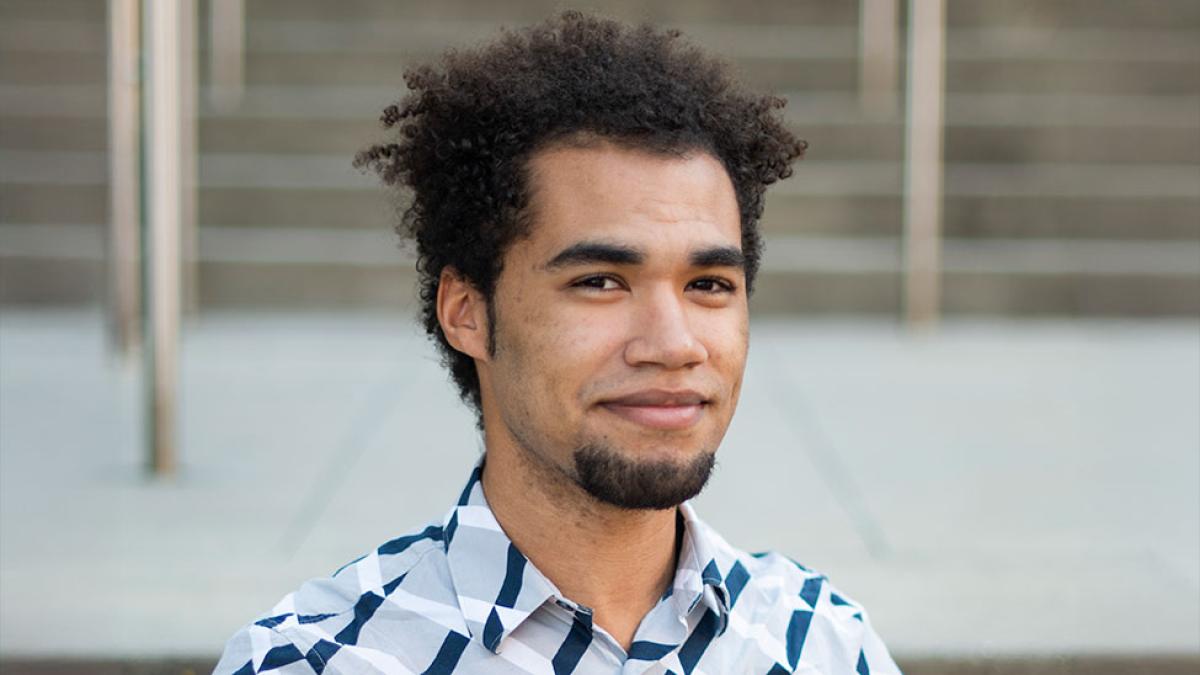
A Transformative Startup Bridging the Gap
Jamal Hermitt is Co-Founder and CEO of The Urban Pinnacle (TUP) is a transformative startup that aims to bridge the gap between underserved communities and sustainable employment opportunities by providing comprehensive vocational training and support.


Jamal Hermitt
Co-Founder and CEO, The Urban Pinnacle
About the Startup
The Urban Pinnacle (TUP) is a transformative startup that aims to bridge the gap between underserved communities and sustainable employment opportunities by providing comprehensive vocational training and support. TUP focuses on empowerment through education, job readiness, and community collaboration, emphasizing the development of both hard and soft skills.
Inspiration for the Company
What has been an evolving conversation between myself and fellow co-founder Jeriel Slay, the idea for TUP was born from personal experiences and challenges within a marginalized community. Recognizing the systemic barriers that often hinder progress for many in underserved areas, we envisioned a platform that could offer more than just job placement—focusing on holistic development and long-term success. With the opportunity to develop the concept into a startup by participating in Columbia Business School's Tamer Institute of Social Impact and Climate Change StartUps Work Workshop series, we were able to secure non-profit status and further build out the model.
Benefits from The Front Yard at Pace University
The Front Yard at Pace University has been instrumental in TUP's growth, providing a nurturing environment that fosters innovation and scalability. It has offered vital resources, mentorship, and networking opportunities, enabling TUP to refine its mission and expand its impact. Specifically, with access to The Front Yard, as a StartUp In Residence, The Urban Pinnacle has gained team members who are interested in furthering the mission, a network of individuals looking to partner/collaborate from within their professional capacities, facilities to host the necessary meetings/functions that move us forward, and backing from a well-respected institution, which breaks down barriers even yet to be seen.
Experiences with The Front Yard
Our experiences at The Front Yard have been overwhelmingly positive, with the StartUps in Residence incubator playing a crucial role in streamlining TUP's operations and helping the startup navigate the complexities of business development in the social enterprise sector. So far, as previously mentioned as a benefit of our affiliation, we have secured our first major employer, our program director, and an assortment of professionals looking to either consult or advise us during our growth, all at no cost. This was the fruit that came from our initial event as a StartUp in Residence, not even a month into our official onboarding.
Challenges Overcome
Personal challenges faced in life, I believe, are the major catalyst behind TUP's mission. It was the specific challenge of rebuilding myself, post incarceration, that has made me believe that there is genuinely a need for this work to be done and there is a place for this work to become a significant solution to a societal problem: unemployment levels in America. One significant challenge TUP continues to face is the shifting of public and potential investor perceptions about the viability and impact of social enterprises, especially those focusing on systemic change within marginalized populations. With every collaboration, partnership, and successful placement, we continue to provide a use case that makes this challenge less of a significant one.
I advise aspiring entrepreneurs to stay committed to their vision, be ready to adapt, and deeply understand the needs of their target community.
Advice for Aspiring Entrepreneurs
I advise aspiring entrepreneurs to stay committed to their vision, be ready to adapt, and deeply understand the needs of their target community. I would emphasize the importance of resilience and the willingness to learn from every situation—whether a success or setback.
October 2024: A Message from President Krislov
Groundbreaking research, global connections, and civic responsibility. This month’s Pace Now highlights how Pace students and alumni are leading the way in shaping the future. Don’t miss President Marvin Krislov’s inspiring message on the importance of being an engaged citizen.

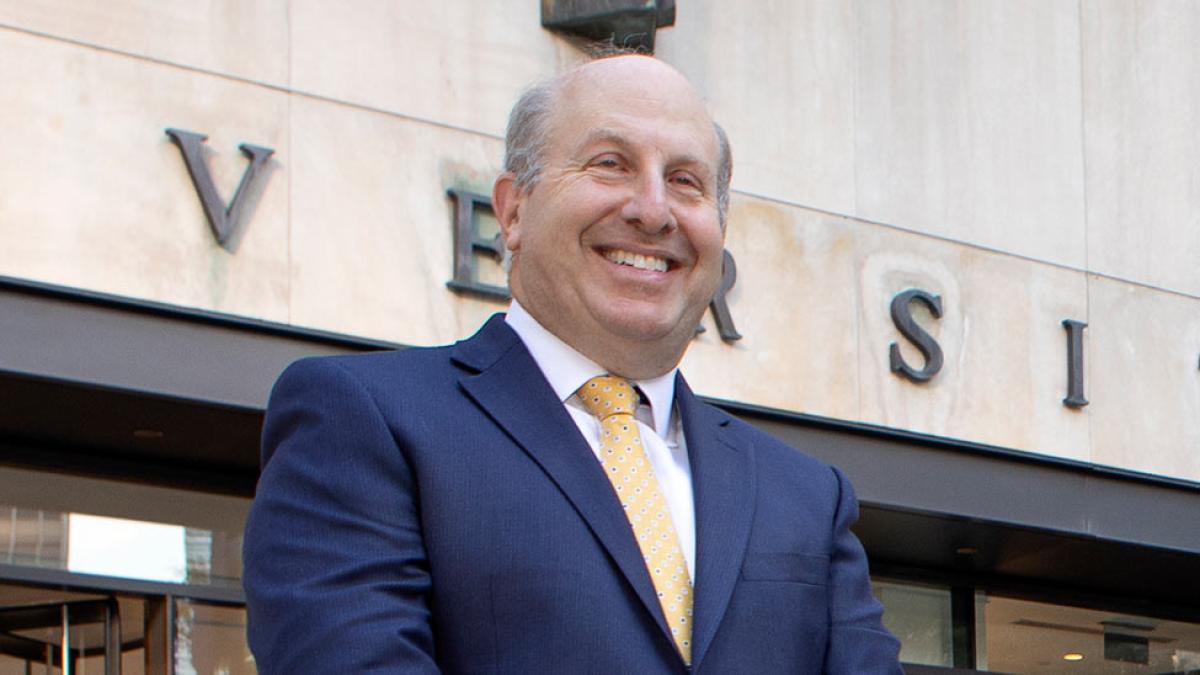
As we approach this election season, we find ourselves navigating a world marked by both opportunity and conflict. At Pace, we have always been a community that values civic responsibility. Whether through thoughtful dialogue, voting, or community engagement, we encourage our students, faculty, and staff to be active participants in shaping the future—both here in New York and across the globe.
This issue of Pace Now reflects the importance of this mission: preparing our community to be informed, engaged citizens. From a guide on how to make your voice heard in the upcoming elections, to celebrating the achievements of our alumni who have shone brightly on the world stage—these stories remind us of the power of action, the importance of community, and the drive to make a difference.
We also spotlight the many ways our students and faculty are leading the charge—whether it’s through groundbreaking research on mental health or taking their talents abroad to build global connections. These stories are not just examples of individual success but are testaments to the strength of the Pace Community as a whole.
As we continue to engage with the world around us, I encourage everyone to reflect on how we can contribute to a more informed and inclusive society. Let’s take this moment to not only express our voices but also listen to the diverse perspectives that make our community so vibrant.
Together, we can navigate these challenging times and emerge stronger—more connected, more informed, and more civically minded.
More from Pace
The 2024 Presidential Election is just around the corner, and now’s the time to make your voice heard! From registering to vote, casting your ballot on campus, to attending fun voter engagement events, Pace University has you covered. Check out our guide to all things voting, powered by the Center for Community Action and Research and the Andrew Goodman Foundation.
Who is going to address the Class of 2025? You tell us! The annual speaker and honorary degree recipient nomination process has opened so be sure to submit your nomination no later than Friday, October 25.
Kennedi Tichy, a business management student at Pace, shares her transformative experience studying abroad in Lyon, France. From the vibrant culture to newfound friendships across the globe, Kennedi reflects on how this unique opportunity broadened her horizons.
Press Release: 25 Pace University Students Selected for United Nations Academic Impact Millennium Fellowship
Twenty-five students from Pace University have been selected for the highly competitive United Nations Academic Impact-Millenium Fellowship.

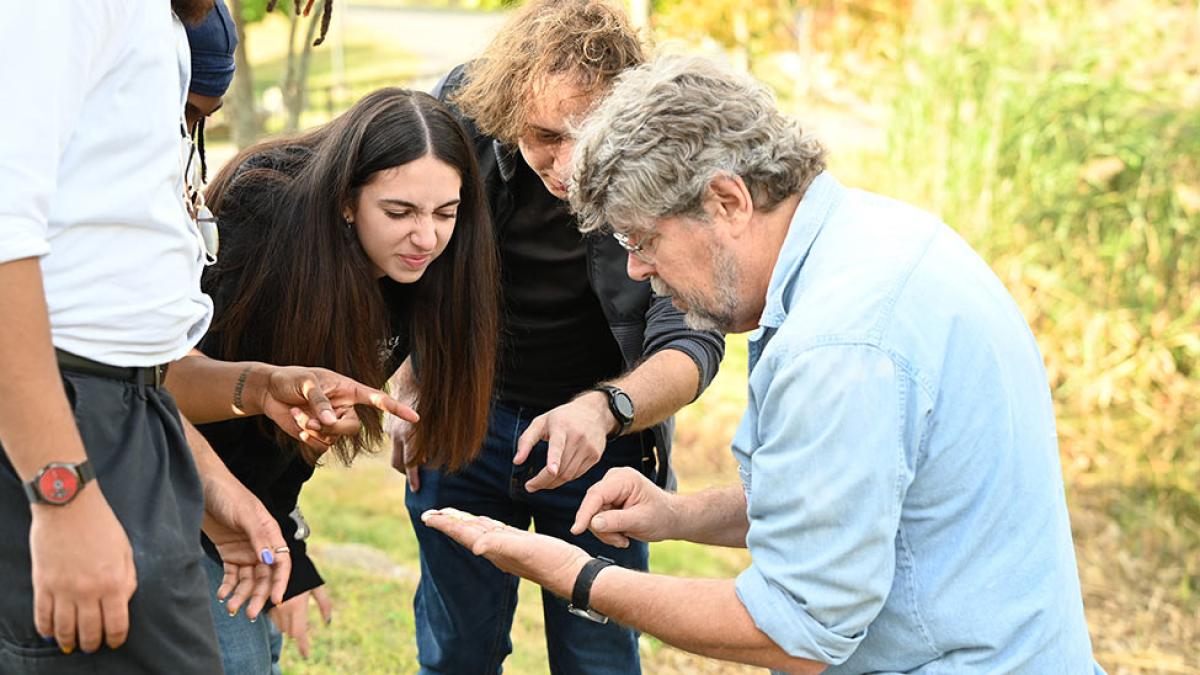
Students among 5% selected for prestigious program
Twenty-five students from Pace University have been selected for the highly competitive United Nations Academic Impact-Millenium Fellowship, the University today announced.
The program received over 52,000 applications from students at 6,000 colleges and universities in 48 nations – and just 5% of those applicants were selected.
During the Fall semester, the Fellows work individually or in small groups on their chosen social impact project that advances one or more of the 17 UN Sustainable Development Goals (SDG) related to peace, justice, wellbeing, and sustainability. They will also connect with students around the world and attend enrichment sessions led by their peers and global leaders.
“Selection to the Millennium Fellowship is a tremendous honor not only for our students but for the entire Pace community,” said Marvin Krislov, president of Pace University. “These students have excelled through a rigorous, competitive process, and the Millennium Fellowship program’s commitment to advancing sustainability and leaving a global impact perfectly aligns with Pace’s mission to foster leadership and service. We proudly celebrate our students’ achievements as they work toward building a more just and sustainable future.”
Students who apply submit a proposal for a project they would like to launch on their campuses or in their communities. The Pace Fellows will be working on projects that include: the right to know what is in one’s drinking water, viewing the Ukrainian war through children’s eyes, reducing the carbon footprint of students in the residence halls, reproductive justice, addressing food insecurity for college students, and advancing human rights for refugees.
Seven of the 25 students are members of the University’s Blue CoLab, which is a group of students, faculty, and staff dedicated to advancing the right-to-know around the world what is in the water we drink. The Blue CoLab is committed to a three-step action plan that includes: petitioning the U.N. to add right-to-know water quality to SDG Goal 6; proposing an amendment to the federal Safe Drinking Water Act spurring the technological innovations that will guarantee the public’s right-to-know water quality; and developing a campus information system that will deliver timely information to the Pace community about their drinking water quality.
Isabella Coraci, a Fellow and information systems major at the Seidenberg School of Computer Science and Information Systems from Staten Island, N.Y. reflected on why advocating for safe drinking water is important to her.
“I think the issue is important because all life needs water,” she said. “We can be doing more to make sure our annual water reports are more accessible to students at Pace and eventually to students at other universities and beyond as well. I am interested in taking my technology degree and marrying that to my interest in public health and environmental health. I am interested in the technical side as well as well as the policy side.”
On being named a Millenium Fellow, Coraci added: “I think it is great to be a part of a global effort to promote the United Nation’s Sustainable Development Goals. The meetings we have had with other U.N. Millennium campuses have been great. We have been able to utilize the Millenium Network and get our project to more people.”
For Genesis Streeter, an English Literature major with a minor in Women and Gender Studies at Pace’s New York City campus who is focusing her project on reproductive justice, the Fellowship provides a sense of community.
“This is a chance to not only meet some of the most outstanding students at Pace University but to also work together to create a more equitable future for our community,” said Streeter. “I chose Reproductive Justice because as a black woman my community is often overlooked in the reproductive space whether it be in reproductive autonomy or motherhood and being able to spread awareness is extremely important.”
The Fellowship’s mission of developing leadership skills in undergraduate students who are interested in advancing the United Nations’ Sustainable Development Goals coincides with the University’s vision of helping all Pace graduates realize their full potential as innovative thinkers and active problem solvers who are uniquely trained to make positive and enduring contributions to our future world.
Pace University’s Assistant Provost for Wellness Sue Maxam said: “The UN Academic Impact-Millenium Fellowship is a truly transformative experiential learning opportunity for our students, which has a huge impact not only on them but the community at large.”
This is the fourth year that students from Pace have been selected for the Fellowship. Seven students were selected in 2021, 15 in 2022, and 30 last year, marking consistent and impressive growth in recent years.
Previous Millennium Fellows have left lasting contributions to the University and the surrounding communities. As part of the 2021 Fellowship, Alexandra Kennedy ’22, Marisa Medici ’22, and Tasfia Rahim ’23 launched Fare Trade, an initiative aimed at combatting food insecurity on campus, which has become a permanent fixture at Pace. The 25 Pace students who have been selected for the 2024 cohort are:
- Anthony Guerrero, Business Economics
- Charles Metayer, Jr., Computer Science
- Destiny Washington, Applied Psychology and Human Relation
- Ian Shimba, Computer Science
- Isabella Coraci, Information Systems
- Lizi Imedashvilli, Information Systems
- Paris Tracey, Personality and Social Psychology
- Phoenix Ellrodt, Information Technology
- Sarah Montimaire, Digital Cinema and Filmmaking
- Sebastian Roman, Information Technology
- Victor Andrade Lima, Computer Science
- Viktoriia Yevtushenko, Business Economics
- Abdulla Alsuwaidi, Finance
- Akithma Moraes, Political Science with a Minor in Business
- Anne Roy, Biochemistry
- Erika Fenty, Environmental Studies
- Genesis Nwoseh-Streeter, English Literature with a Minor in Women and Gender Studies
- Julia DeMaio, Environmental Studies and Peace and Justice Studies
- Madison Everlith, Women and Gender Studies with a Minor in Fashion Marketing
- Mikaela Regan, Global Marketing Management
- Natalie Maclay Tijerina, Peace and Justice Studies
- Patty Murrill, Communications and Media Studies
- Zain Mozai, Biology
About Pace University
Since 1906, Pace University has been transforming the lives of its diverse students—academically, professionally, and socioeconomically. With campuses in New York City and Westchester County, Pace offers bachelor, master, and doctoral degree programs to 13,600 students in its College of Health Professions, Dyson College of Arts and Sciences, Elisabeth Haub School of Law, Lubin School of Business, Sands College of Performing Arts, School of Education, and Seidenberg School of Computer Science and Information Systems.
About the Seidenberg School of Computer Science and Information Systems at Pace University:
The Seidenberg School of Computer Science and Information Systems at Pace University is a leading institute of technology education. Students experience a dynamic and expansive technology education at the undergraduate and graduate levels. One of the first comprehensive schools of computing in the nation, the Seidenberg School is strategically located in the heart of NYC’s tech scene, right on the doorstep of New York’s most promising companies. With access to established tech giants and exciting new start-ups from both the New York City and the Westchester campus, Seidenberg offers the opportunity to connect, intern with, and enjoy lucrative tech jobs following graduation. Through partnerships with leading tech firms, banks, federal agencies, and global institutions, the school’s curricula and programs are designed to ground students in the fundamentals while offering numerous hands-on experiential learning opportunity. The faculty includes numerous experts in artificial intelligence, cybersecurity, data science, game development, software engineering, and much more, who operate labs and centers providing students with practical experience and connections that lead to impressive internships and jobs.
Reducing Stress in the Classroom
Dyson Associate Professor Shirley Wang, PhD, is reimagining the classroom experience at Pace University by integrating wellness-based teaching strategies. Because when students feel their best, they do their best.


“Generally speaking, we can’t do our best in school if we’re really struggling outside of it.”
These are the words of Dyson Associate Professor of Psychology Shirley Wang, PhD, who studies how to integrate wellness-based teaching strategies into the classroom. Primarily, she’s focused on giving the often vague concept of “mental health” some practical structure by improving classroom environments to help students be their best selves.
Traditionally, the concepts of academics and student well-being are managed separately across a University. There’s the academic side—classes taught by professors, where students learn and immerse themselves in course material; and then there’s campus life and student affairs side, where departments invest in student well-being through programming and counseling. Because of the sometimes siloed nature of this setup, Shirley believes that interventions within the classroom–where mental health is not necessarily always naturally implemented, but can very obviously affect performance–can make a huge difference.
As she elaborates, “My research is interested in trying to recognize that well-being is important for our students to be successful. Especially after the pandemic—which was a particularly difficult time for a lot of students—well-being and mental health has become more in the forefront of higher ed administration and faculty. Within that context, I’m interested in understanding how well-being and the academic context play a role together.”
A few years ago, Shirley implemented a new process into her classroom curriculum, which she describes as a very brief teaching intervention, that was meant to convey the extent to which that the two are linked—that well-being and academic abilities and achievement are correlated, and whether small implementations within a curriculum can help students achieve both. Based on the findings from the initial intervention, she was awarded a grant from the Association for Psychological Science to expand the study.
Generally speaking, we can’t do our best in school if we’re really struggling outside of it.
The exact nature of the study is currently being kept confidential so as to not impact the results of the intervention in progress. But on a broad scale its aim is to help students and faculty members think beyond simply assigning and getting work done, and consider factors such as; how can proper sleep be emphasized within the curriculum? Can students be presented with a choice of assignment or deadline that allows them to do their best work with less stress? Are there ways to tackle work that doesn’t encourage last-minute cramming?
Together, considering all of these factors holistically may not only reduce student stress, but create more engaged students who are better able to grasp course material and perform at a higher level.
“What do we really want to get students from our class? What is actually required for students to effectively learn? Sometimes you need things to be concrete; for example, you may need there to be an in-class final on a certain day. But if there are other times where you can be flexible, how can that be implemented into a system that might help relieve student stress?”
Currently, the intervention is being rolled out across a number of different classes within Dyson. Based on the results, Shirley is hoping to expand it beyond Dyson and beyond Pace, so that mental health and well-being can be better addressed classrooms all over.
“Well-being shouldn’t be one more thing on top of everything else. Academics and well-being ought to be together.”
More from Pace
Svetha Nallapaneni, Elsa Stallings, and Mckenzie Landis aren’t just Pace grads—they’re go-getters who took their talents to the 2024 VMAs, performing alongside rock legend Lenny Kravitz on one of the most iconic stages in the world.
Kennedi Tichy, a business management student at Pace, shares her transformative experience studying abroad in Lyon, France. From the vibrant culture to newfound friendships across the globe, Kennedi reflects on how this unique opportunity broadened her horizons.
As artificial intelligence started reshaping industries, software engineer Ross Carvalho ’25 knew it was time to evolve. He came to Pace to master the AI foundations, a decision which has opened doors to mentorship, hands-on experiences, and even an internship with Apple.
Empowering Developers: The Pace Experience of a Successful Startup Entrepreneur
Fabian Hiller is an international graduate student at the Seidenberg School of Computer Science and Information Systems, whose journey in tech entrepreneurship is marked by passion, innovation, and hands-on experience.
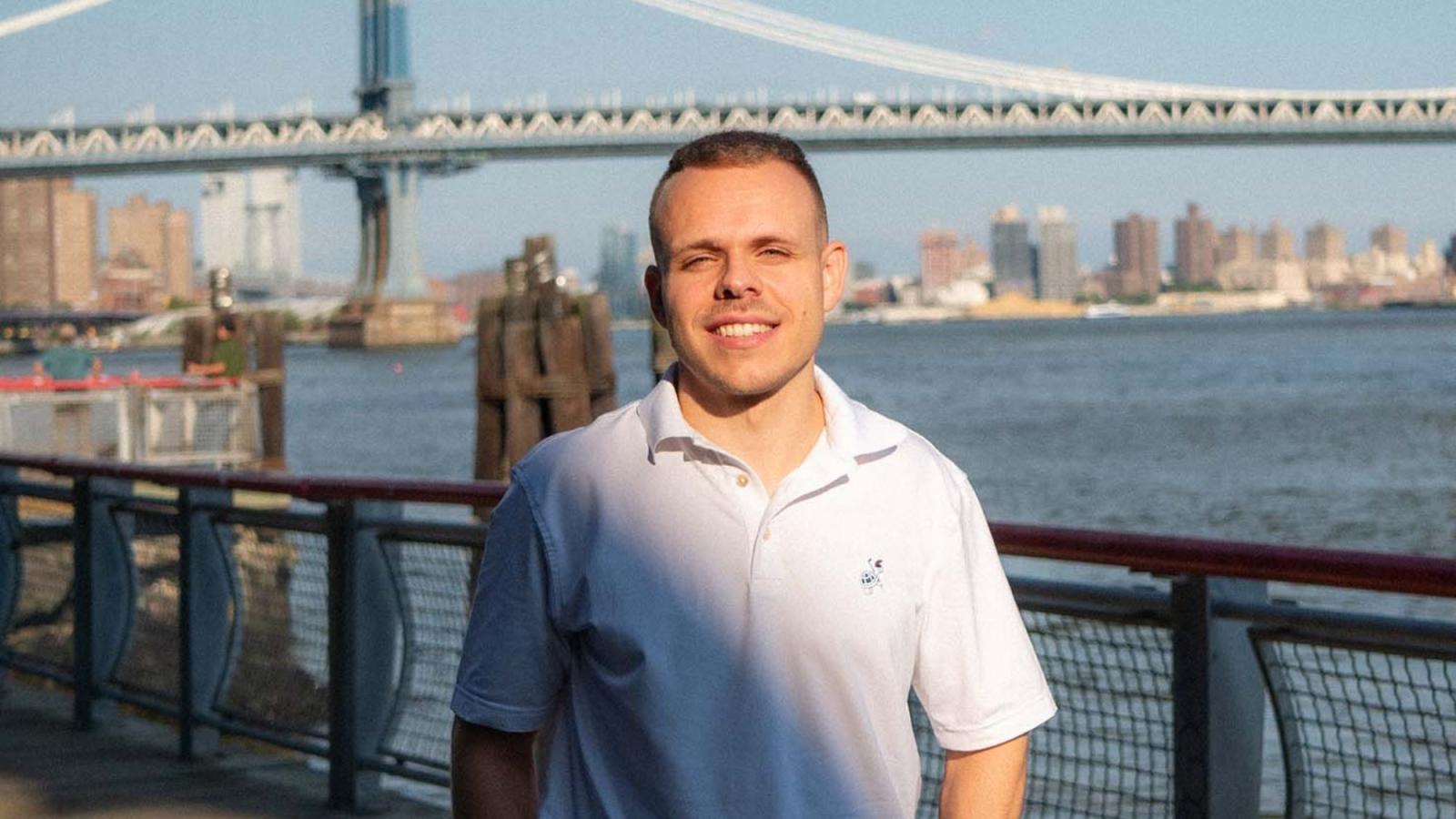
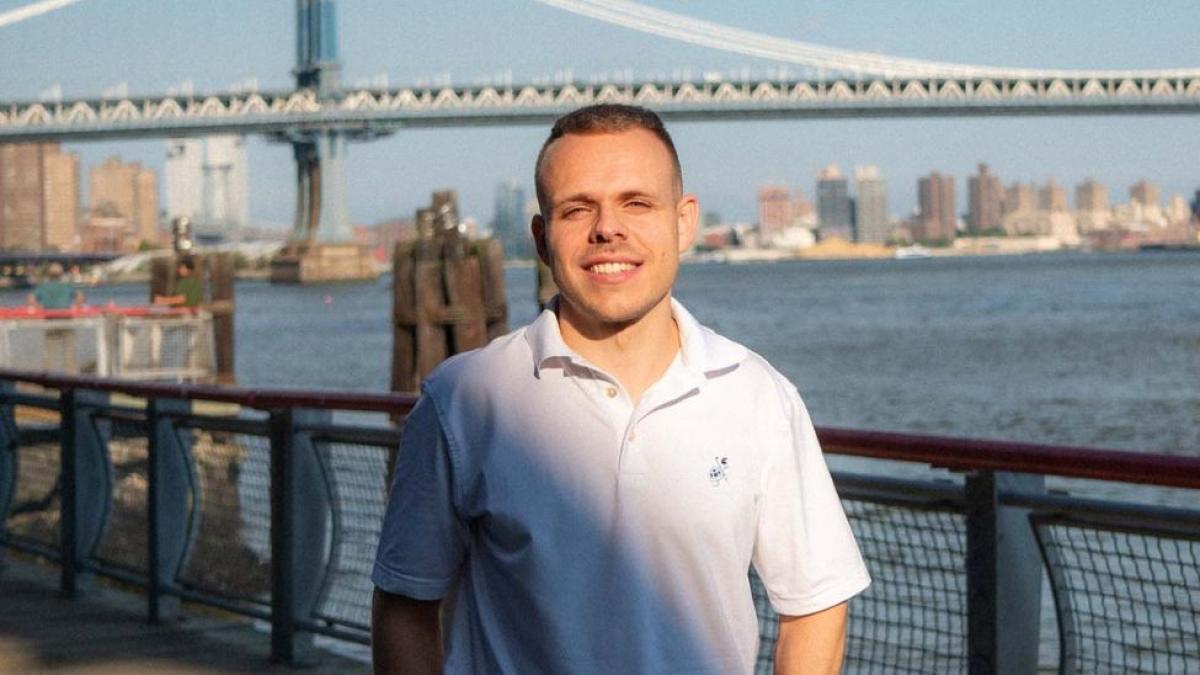
Fabian Hiller is an international graduate student (MS in Computer Science) at the Seidenberg School of Computer Science and Information Systems, whose journey in tech entrepreneurship is marked by passion, innovation, and hands-on experience. He originally started his open-source project Valibot as part of his bachelor thesis at Stuttgart Media University, and has continued to improve and develop it as a Pace student. Today, Valibot has been downloaded more than 7 million times, and Fabian expects to see even greater adoption in the tech industry.
Valibot is an open-source library designed to help developers build reliable, type-safe applications more easily. In software development, validating data is crucial to ensure that information entered into a system is correct and secure. Fabian’s project addresses this need by providing a flexible and efficient way to validate inputs, reducing the likelihood of errors and potential security issues. Valibot’s focus on performance and ease of integration makes the project an attractive option for developers looking to streamline their code and create dependable software across a variety of platforms, ranging from websites to web applications and web servers.
Fabian's choice to come to New York and study at Seidenberg was driven by the school's strategic location in downtown Manhattan, the strong support from faculty members, and the array of opportunities it offers for research, learning, and networking. As an active member of the Seidenberg community, Fabian emphasizes the importance of its academic experience, but also wants to encourage students to immerse themselves in extracurricular activities like events, clubs, and volunteering. Whether he's at the gym with fellow students or collaborating and making meaningful connections with tech industry leaders, Fabian has embraced the experiential learning ethos at Pace to grow both his technical and entrepreneurial skills. We had a chance to catch up with Fabian, so read on to find out more about his experience at Seidenberg, as well as his tips for success.
If you could pick an ideal day close to campus, what would it be?
I enjoy going to the gym and doing sports with other Pace students. I regularly join the boxing or volleyball club, play basketball, or work out in the weight room. I also enjoy walking around downtown Manhattan with friends and have good conversations.
As an international student, what made you pick Seidenberg as your school of choice?
There are many reasons. It starts with the great location in downtown Manhattan and ends with the immense support I receive from Pace University and its faculty members. Seidenberg provides many excellent opportunities to learn new things and meet new people.
If you could recommend one thing to students applying to Pace and to Seidenberg, what would it be?
I would recommend being active and attending the events that Seidenberg offers in addition to your normal class schedule. There are also many opportunities throughout the year to volunteer and meet other startup founders or employees from organizations such as Blue Origin, Google, Meta and Verizon.
What led you to pursue entrepreneurship in tech? Has it been a challenging journey so far?
I have been passionate about entrepreneurship and technology for a long time, and have tried many different things since I was a teenager. Be it game development, graphic design or video production. I have always enjoyed leading the foundation for new projects. I am very interested in having a positive impact on entrepreneurship and technology in the long run.
But, I cannot say that it has not been without challenges. Even though these areas are my passion, at the end of the day, it takes hard work and a lot of discipline to build great and innovative products with sustainable success in the long run.
What has been your favorite project to work on so far?
So far, Valibot has been my favorite project to work on. I started it as part of my bachelor thesis at the Stuttgart Media University in August 2023 and continued the research and development as part of my master’s at Pace University. With more than 7 million total downloads, I believe that it has the potential to soon be one of the most well-known and used libraries in its field.
How has Pace helped you with your projects?
In addition to all the benefits mentioned above, like great events and opportunities for networking, Pace University supports me with its Graduate Assistantship Program. As part of it, I get mentorship from Dr. Jonathan Hill and Dr. Christelle Scharff, and the financial support from the program allows me to focus on research and development of my open-source projects alongside my studies.
What are some of your future plans? Any research topics in the works?
Yes, I have a lot of ideas and plans. One of them is to release the first stable version of Valibot in the next weeks. Since the library could become a fundamental building block for many websites and applications, I expect a wider adoption and integration into other libraries and frameworks. I also plan to continue my research on bundle size and performance to further improve Valibot and share my findings with the open-source community.
Finally, do you have any tips or advice for students wanting to seek a career in entrepreneurship or tech?
I think the most important thing is to be true to yourself, to say "no" to stay focused, and to find your passion by regularly trying new things to enjoy what you do in the long run.
Cybersecurity Awareness Month at Pace University: Education, Research, and Business
October is Cybersecurity Awareness Month, and it’s off to a strong start at Seidenberg. Check it out.
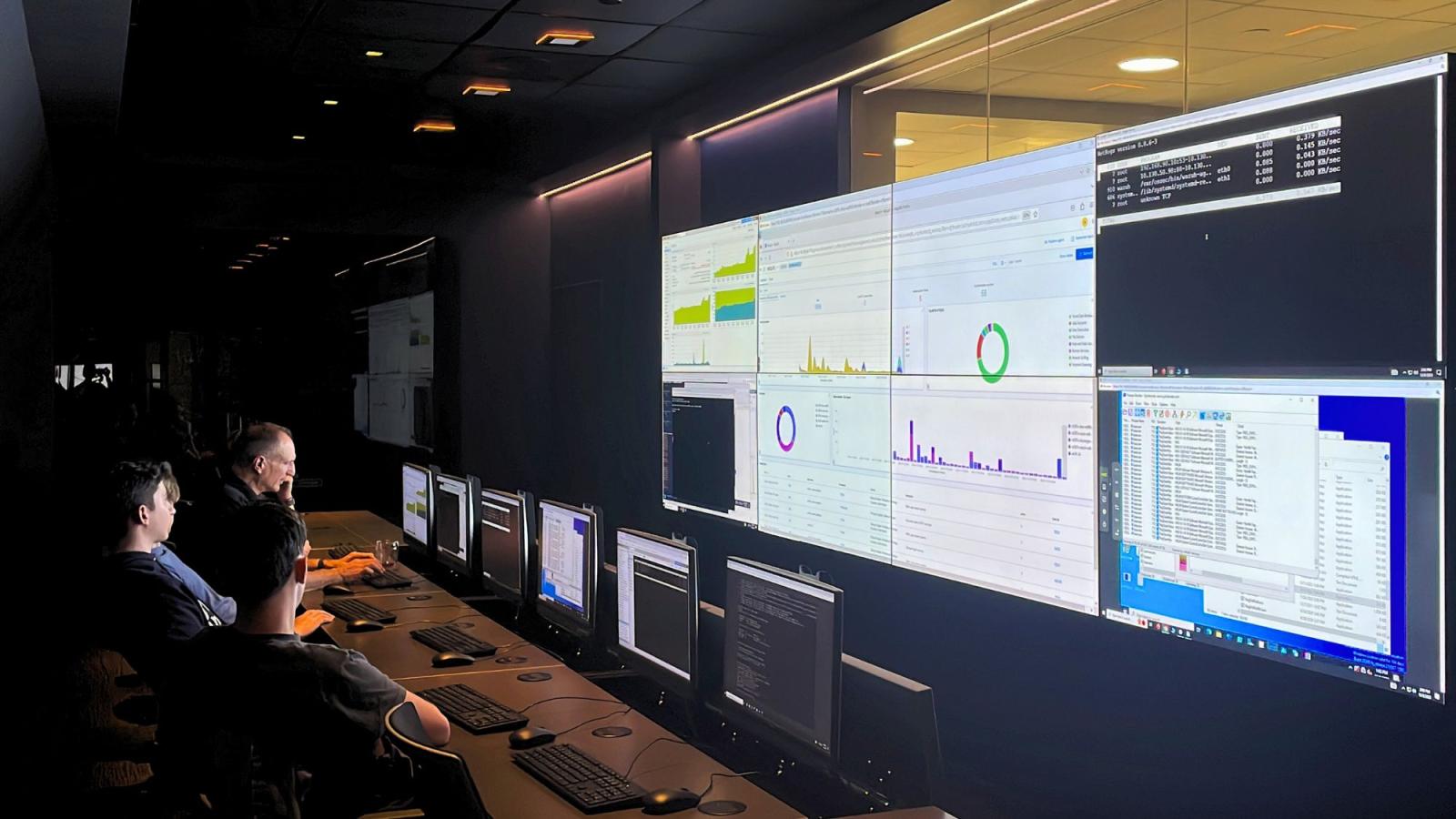
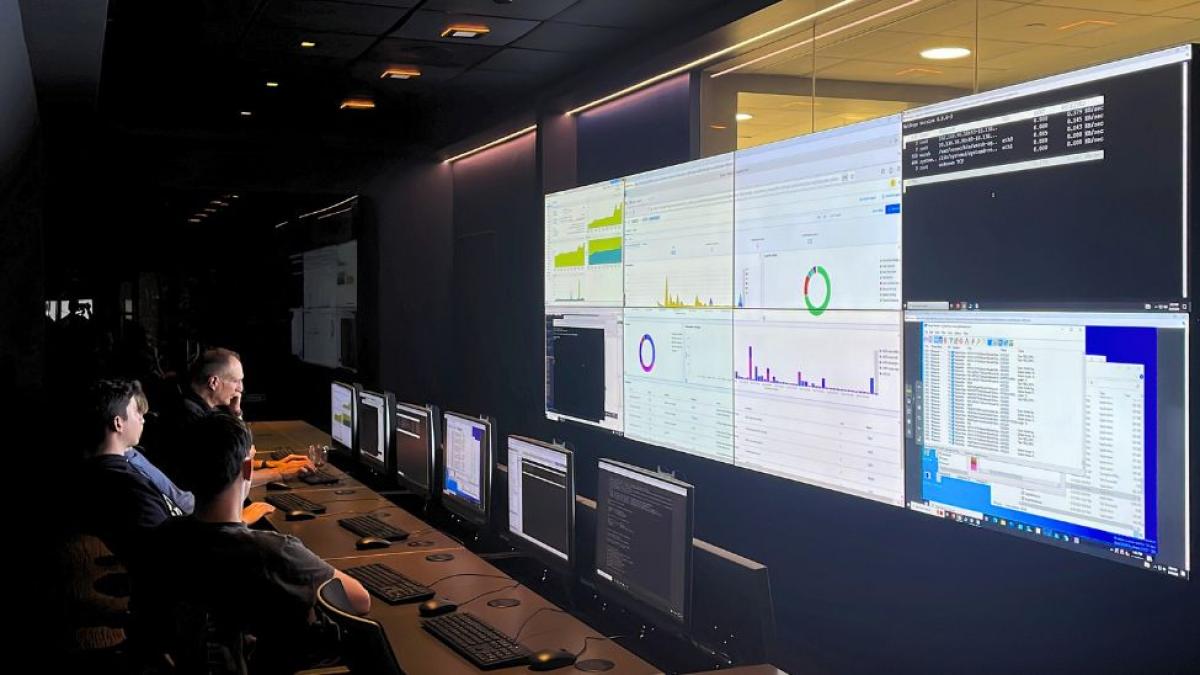
What’s the scariest thing about spooky season? Skeletons and ghosts? Nope. It’s the high risk of phishing, malware, and hacking attacks that take place around the globe!
Pace University’s Seidenberg School of Computer Science and Information Systems has a long history of excellence in cybersecurity education and research. Students who study cybersecurity at Pace University frequently land exciting jobs and internships in local and national corporations, as well as government agencies where they strive to keep data safe. This is no more present than through the exclusive CyberCorps: Scholarship for Service program. Available to both undergraduate and graduate students, the program covers the costs of a cybersecurity education and provides a full time job with a government organization after graduation. This program, alongside a roster of talented cybersecurity faculty, has empowered the Seidenberg School to train the cybersecurity workforce of the future.
October is Cybersecurity Awareness Month, and it’s off to a strong start at Seidenberg. Check it out:
Converge Cybersecurity conference at Pace University
On October 1, some of the best business and tech minds in Westchester County arrived at Converge: The Hudson Valley Digital Innovation Conference on Pace’s Pleasantville Campus. The event was run by Westchester County Association and covered digital equity, broadband and internet, and the importance of digital security. Panelists included experts from IBM, AT&T, Optimum, Brookings Institution, Cuddy & Feder LLP, Slalom, Crown Castle, Empire State Development, and the STEM Alliance, as well as the City of Mount Vernon and the NYS Division of Homeland Security and Emergency Services.
Seidenberg Dean Li-Chiou Chen and Professor Joe Acampora spoke on the cybersecurity panel alongside NYS Assemblyman Steve Otis and Meghan Cook, Director of the Cyber Incident Response Team at the NYS Division of Homeland Security. The panel was moderated by Stephanie Pell, Fellow in Governance Studies at the Bookings Institution.
Cybersecurity education and research grant funding
Just in time for Cybersecurity Awareness Month, the Seidenberg School earned two new grants to conduct cybersecurity training and research, furthering Pace’s position as the center for cybersecurity in New York City and Westchester County.
Funding from Consolidated Edison Company of New York, Inc. will support an experiential training program to prepare Pace students for careers in cybersecurity. Utilizing Pace’s newly launched Cyber Range, an interactive technology environment located on the Pleasantville campus – and one of only a few in the region – students will prepare to fill roles with public and private sector employers and practice how to address and mitigate an orchestrated hack or other cyber threat.
A second grant from the Gladys Brooks Foundation will provide complementary hardware and software, servers, and internet networking devices to conduct educational training experiences on critical infrastructure security.
New cybersecurity degree program at Pace University
To top it all off, the brand-new Bachelor of Science in Cybersecurity is now open for applications and will launch in the Fall 2025 semester. The program is available in both New York City and Pleasantville and will prepare students for jobs in cybersecurity.
Seidenberg also offers a Master of Science in Cybersecurity, which is popular with career changers looking to join a field that urgently needs trained professionals.
Spooky enough for ya? If not, just remember this—a leading cause for cybersecurity incidents is human error! So stop leaving your passwords on a post-it, capische?
Helene and Grant Wilson Center for Social Entrepreneurship Leads Community-Engaged Research Initiatives in Westchester County, the NY Metro Area, and Beyond
The Helene and Grant Wilson Center for Social Entrepreneurship at Pace University leads and supports Community-Engaged Research across its many partnerships with local communities and organizations. Community-engaged research is a collaborative process that incorporates the input of individuals and organizations affected by research outcomes as equal partners in the research process.
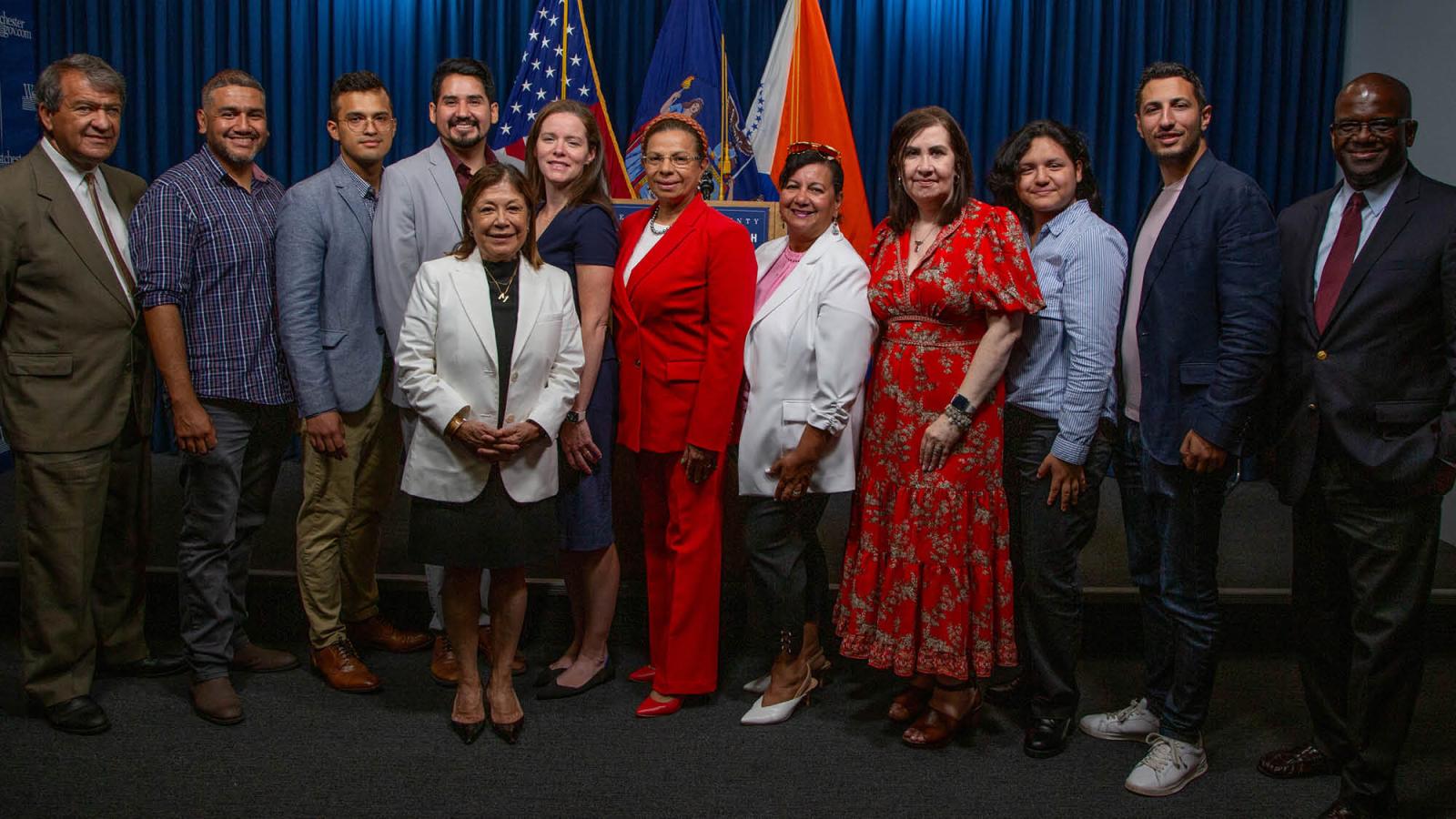
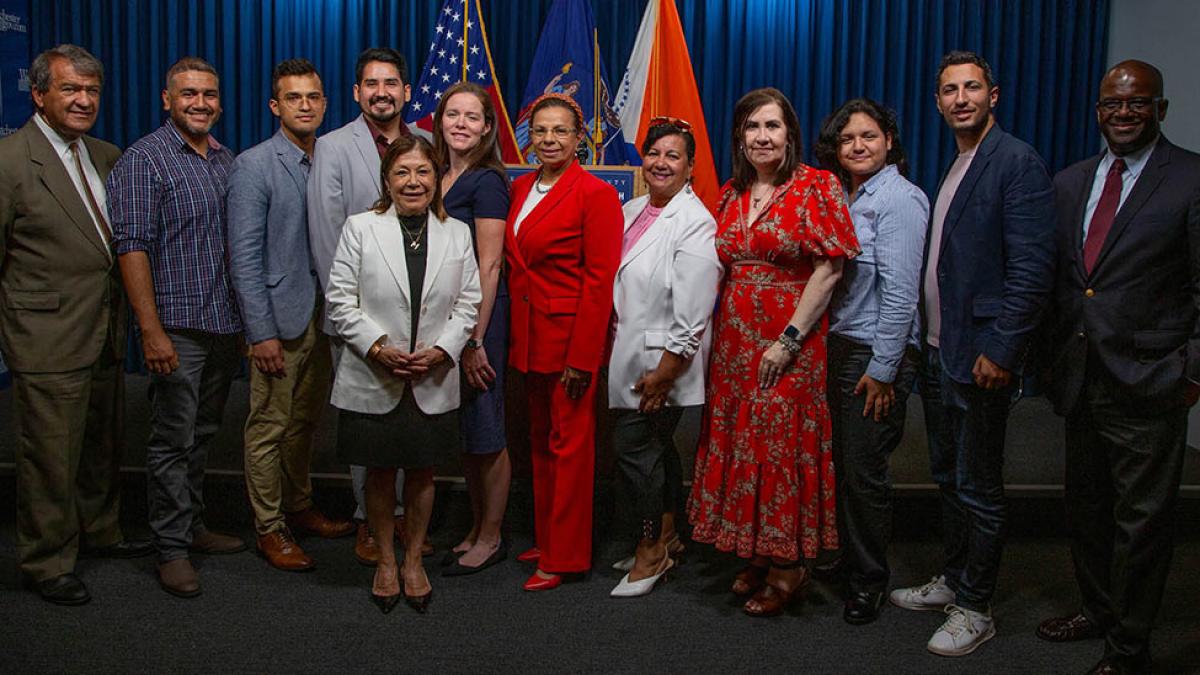
The Helene and Grant Wilson Center for Social Entrepreneurship at Pace University leads and supports Community-Engaged Research across its many partnerships with local communities and organizations. Community-engaged research is a collaborative process that incorporates the input of individuals and organizations affected by research outcomes as equal partners in the research process. This collaborative research approach encompasses co-designing research questions, dialoguing on methods, influencing policy, and ultimately creating programs and interventions to address issues identified by the community, reflected in the research outcomes. The community remains a true partner in these decisions, ensuring that the appropriate actions are taken and solutions are relevant and beneficial to their lives.
Most recently, Westchester County Executive George Latimer announced a crucial new initiative led by the Westchester Hispanic Advisory Board and Pace University faculty researchers, Wilson Center Executive Director and Chair of the Public Administration department Professor Rebecca Tekula PhD & Public Administration Professor, Gina Scutelnicu Todoran PhD. This initiative, the first comprehensive needs assessment of the Latino community in Westchester County in over two decades, will provide valuable insights on key areas such as education, healthcare, employment, housing, and social services. Our team of Pace faculty researchers brings academic rigor and expertise to the project, ensuring the collection of high-quality, actionable data, and will support the County in interpreting the findings toward policy implementation. Professor Tekula emphasizes the importance of this initiative, stating, "Collaborating on this survey underscores our commitment to community-engaged research in Westchester County. We are proud to partner on this effort to capture the voices and experiences of Latino residents, toward the goal of informing and improving the delivery of services and supports." The data from this study will provide essential information to enhance county programs and services, ensuring they align with the current needs of the Latino community. The Hispanic Advisory Board, led by Chair Dr. Carmen Martinez Lopez, encourages all Latino residents to participate, as their collective input will be instrumental in shaping future policies and improving the quality of life in Westchester County.
Earlier this year, recent Wilson Center Faculty Fellow and Public Administration Professor Gina Scutelnicu Todoran, PhD and Wilson Center Executive Director and Chair of the Public Administration department Professor Rebecca Tekula, PhD secured a nearly $30,000 grant from the Council of Family and Child Caring Agencies (COFCCA) to evaluate the financial health of approximately 75 New York State agencies that provide child welfare services, including foster care, preventive services, and juvenile justice services. Working alongside two Pace University graduate students, Scutelnicu-Todoran and Tekula conducted a comprehensive financial analysis encompassing cumulative organizational revenues, expenditures, endowments, and other investments. The project, set for completion this fall, will culminate in a detailed report and presentations to executive and legislative leaders at both the New York State and New York City levels. Individual agency reports will also be provided for all COFCCA members. The primary aim of this research is to inform stakeholders of the financial health and needs of these agencies, and support advocacy toward informed and strategic budgetary decisions that will enhance child welfare and juvenile justice services across the state.
In another significant project, the Wilson Center partnered with Nonprofit Westchester and Dyson College’s Department of Public Administration to conduct a comprehensive study which led to the publication of Westchester County’s Nonprofit Compensation and Benefits Report. This study, funded by the Westchester Community Foundation, aimed to provide Nonprofit Westchester members, the broader sector, and government partners with data and insights to ensure equitable compensation and benefits for sector employees. Given the size and importance of the nonprofit sector in the county, the research shed light on the state of compensation and benefits for individuals delivering critical programs and services. The resulting report has empowered nonprofits with resources to advocate for investments in human capital, supporting the well-being and sustainability of their employees and organizations.
Previously, in 2022 a partnership with the Wilson Center, Pace University’s Department of Public Administration in Dyson College, and the Community Fund of Bronxville, Eastchester, and Tuckahoe, conducted a comprehensive community needs assessment to identify available services and resources for residents and uncover potential gaps in human services, healthcare, housing, public safety, daycare, and recreation. This year-long project was led by Pace faculty with the support of students, staff, Community Fund leadership, and local agencies. The outcomes of the assessment were shared disseminated among stakeholders and Pace faculty led several community conversations to help the Community Fund of BET, local agencies and nonprofits leverage the findings, prioritize programs, and develop impactful initiatives to better serve the residents of Bronxville, Eastchester, and Tuckahoe.
The Helene and Grant Wilson Center for Social Entrepreneurship commitment to community-engaged research highlights the importance of collaboration between academia and community partners. By involving the community in every step of the research process, the Wilson Center faculty, staff and student partners ensures that outcomes are not only academically rigorous but also practically relevant and beneficial to those who need them most. This approach not only advances academic research but also fosters meaningful partnerships that drive positive social change.
Sands College Stars Shine Bright at the VMAs
Svetha Nallapaneni, Elsa Stallings, and Mckenzie Landis aren’t just Pace grads—they’re go-getters who took their talents to the 2024 VMAs, performing alongside rock legend Lenny Kravitz on one of the most iconic stages in the world.


Under the bright lights of the 2024 MTV Video Music Awards (VMAs), recent graduates of Pace University’s Sands College of Performing Arts—Svetha Nallapaneni, Elsa Stallings, and Mckenzie Landis—found themselves on one of the world’s most iconic stages. They were not just spectators but integral parts of a high-profile performance with none other than rock legend Lenny Kravitz, whose electrifying act left the audience of millions in awe. For Svetha, Elsa, and Mckenzie, this was not only the culmination of years of training but also the realization of dreams.
“While I was performing, I looked up for a split second, and Paris Hilton was just dancing in front of me so nonchalantly,” says Svetha. “All I could think was, ‘Oh my God, that’s Paris Hilton!’ and then I went right back to the dance!”
“Getting to experience this dream with so many friends I made through my years at Pace was just the cherry on top! This was definitely a dream job of mine, and I’m looking forward to doing it again in the future.”
For Svetha, the journey to the VMAs started with a single phone call. “I was direct-booked for this project by Fatima Robinson and her creative team,” she recalls. Svetha, a 2023 graduate with a BFA in Commercial Dance, had worked with Robinson during her time as a Knicks City Dancer. Mckenzie, who graduated with Svetha and is also currently in her third season as a Knicks City Dancer, also made her VMA connection through her prior work. When the opportunity arose to dance at the VMAs, Robinson knew who to call. “This was the first awards show I’ve danced at, and getting to dance with Lenny Kravitz of all people was so surreal,” Svetha says. “Getting to experience this dream with so many friends I made through my years at Pace was just the cherry on top! This was definitely a dream job of mine, and I’m looking forward to doing it again in the future.”
Elsa’s path to the VMAs was equally exciting but rooted in her ongoing professional relationship with Robinson. Since graduating in 2020, Elsa had worked closely with the renowned choreographer as her assistant and had been a part of Kravitz’s Blue Electric Light Tour. “I've had the honor of working closely with her for the past year or so, and we just wrapped up our work as the creative team for Lenny's Blue Electric Light Tour and his kick-off show for UEFA at Wembley Stadium in London in June,” Elsa explains. “His performance at the VMAs was somewhat of an extension of the work we’ve done with him this summer.”
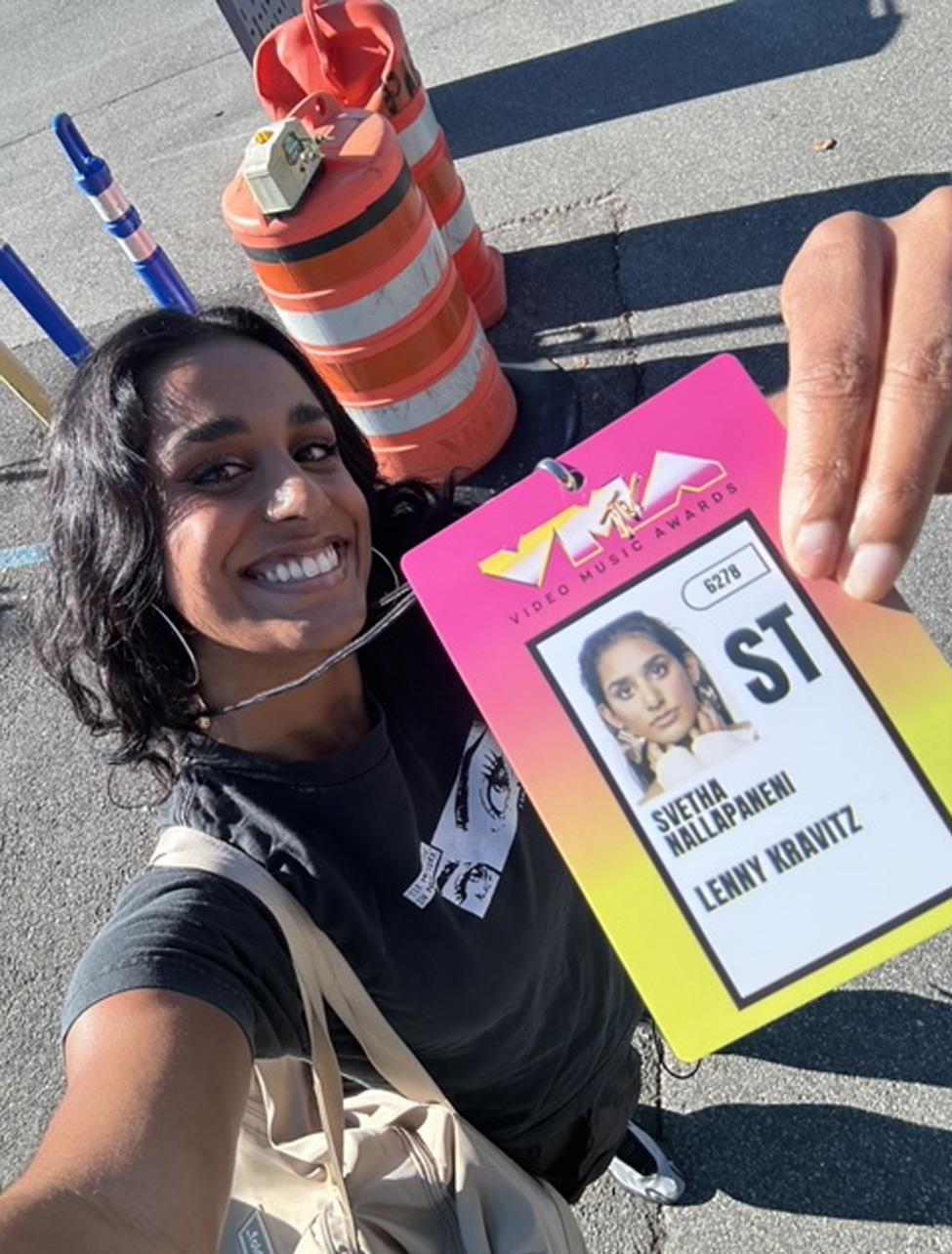
The VMAs have always been known for their ability to pull in massive viewership, and this year was no different. The show attracted over 4 million viewers, making it the most-watched VMAs in years. Performing alongside Kravitz, the Pace performers weren’t just dancing—they were contributing to a performance that would be talked about for months. “The moment I walked on stage with my fellow dancers during the real show is something I'll never forget,” recalls Elsa. “The entire process leading up to the show was very intense, but right when I got on stage and heard the crowd cheering, I felt a wave of ease and confidence that I only get when performing.”
Mckenzie agrees, adding, “The feeling when we walked onto the stage and saw the crowd and all the fans in the pit was crazy!”
The preparation, of course, was no easy feat. Elsa had the added challenge of juggling multiple roles, from creative assistant to production assistant, while still fulfilling her duties as a performer. “Along with being hired as a dancer, I was also the creative assistant and production assistant... so balancing these three roles was pretty time-consuming,” she says. “The choreography for the performance constantly evolved, with changes being made right up until the day of the show.” For Svetha, this was all part of the challenge. “We had to make changes on the spot every single day, so being adaptable and smart while in rehearsal and during the performance was crucial.”
“My training before Pace was mainly in ballet, so I really wouldn’t have been able to perform this commercial choreography if it weren’t for my eclectic training at Pace."
So, what was it like performing with Lenny Kravitz?
“Given his unmatchable star power and icon status, Lenny is an incredibly humble, kind, and overall wonderful person to be around,” Elsa says. “He has a very hands-on collaborative approach while still giving his team the space they need to create. He's a true master at his craft, both as a performer and musician, so you can imagine how inspiring it is to be around someone of his caliber.” Mckenzie echoes Elsa’s sentiment about the rock legend, “Lenny was so nice and super involved in the process and vision, which was very cool!”
“Lenny Kravitz is everything you imagine a rockstar to be!” adds Svetha.
Both graduates credit their time at Pace’s Sands College of Performing Arts for preparing them for the high-pressure environment of the VMAs. “My training before Pace was mainly in ballet, so I really wouldn’t have been able to perform this commercial choreography if it weren’t for my eclectic training at Pace,” says Elsa. “For this, I’m very grateful for the curriculum and faculty that nurtured me into a well-rounded artist.” Svetha echoes this sentiment: “During the LA Semester, we took both Choreography for the Camera and Dance on Camera, which allowed me to see dance in a different way. I learned how to position myself in formation according to camera, how to perform to the camera, and what movements looked right for camera if I ever had to improvise! I don’t feel like I would’ve been as prepared if I didn’t have that training.”

As part of a larger contingent of Pace alumni performing at this year’s VMAs, Svetha, Elsa, and Mckenzie were joined by Maddie Obregon, who also performed with Kravitz, as well as Andrew Mulet, who danced for Chappell Roan, Valeria Yamin with Katy Perry, and Hunter Tayman with Eminem. Their collective presence was a testament to the world-class training offered at Sands College.
For Elsa, Svetha, and Mckenzie, the VMAs were not just another gig—it was the opportunity of a lifetime, a chance to stand beside music legends and showcase the talent and discipline that Pace had instilled in them. “Nothing will ever beat the feeling of performing for me, and this was an extra special moment in my career,” Svetha says. “I don’t think I’ll ever forget rocking it out on stage with the legendary Lenny Kravitz!”
“Performing at the VMAs was definitely one of my big goals,” says Mckenzie. “And I’m blessed to say I can check it off the list!”
For these go-getters, the future is wide open, but one thing is clear: they are more than ready for whatever comes next.
More from Pace
Imagine dancing with Doja Cat. Now imagine doing it in front of 865,000 people. For Joanne Daquigan, Jada Clark, and Tiffani Rusell that dream became reality. Last month, they and several other members of the Pace Commercial Dance community performed alongside some heavy-hitting A-listers at MTV's VMAs.
Pace University’s Sands College of Performing Arts has named Mandy Moore as director of its Commercial Dance LA semester. The BFA Commercial Dance Program was founded in 2012 and launched its first full semester in LA in 2018. The Commercial Dance program brings 35 students to Los Angeles in the spring semester of their junior year. The renowned choreographer will teach the choreography for its camera course and direct the showcase course.
Experiential learning isn't just a trend in higher education; it's the heartbeat of the Pace experience. From donning hip-waders to assess water quality, documenting first-hand narratives of a groundbreaking era in human history, immersing in a transformative semester in LA, to initiating and overseeing on-campus businesses from inception—Pace students don't just learn, they do.
Economics Professor Explains Impact of Port Workers Strike on WPIX-TV
Clinical Associate Professor of Economics Mark Weinstock, MA, appeared on WPIX-TV (Channel 11), to weigh in on the possible economic impact of the port workers strike affecting 36 US ports from Maine to Texas.
“If the strike lasts less than two weeks, I don’t think the impact on the economy is going to be too significant,” he said.
According to Weinstock, the goods will still ship through the western ports and reach the New York City area by rail or truck with a slight increase in prices.
“I would be surprised if it were higher than 5-10%,” Weinstock said.
